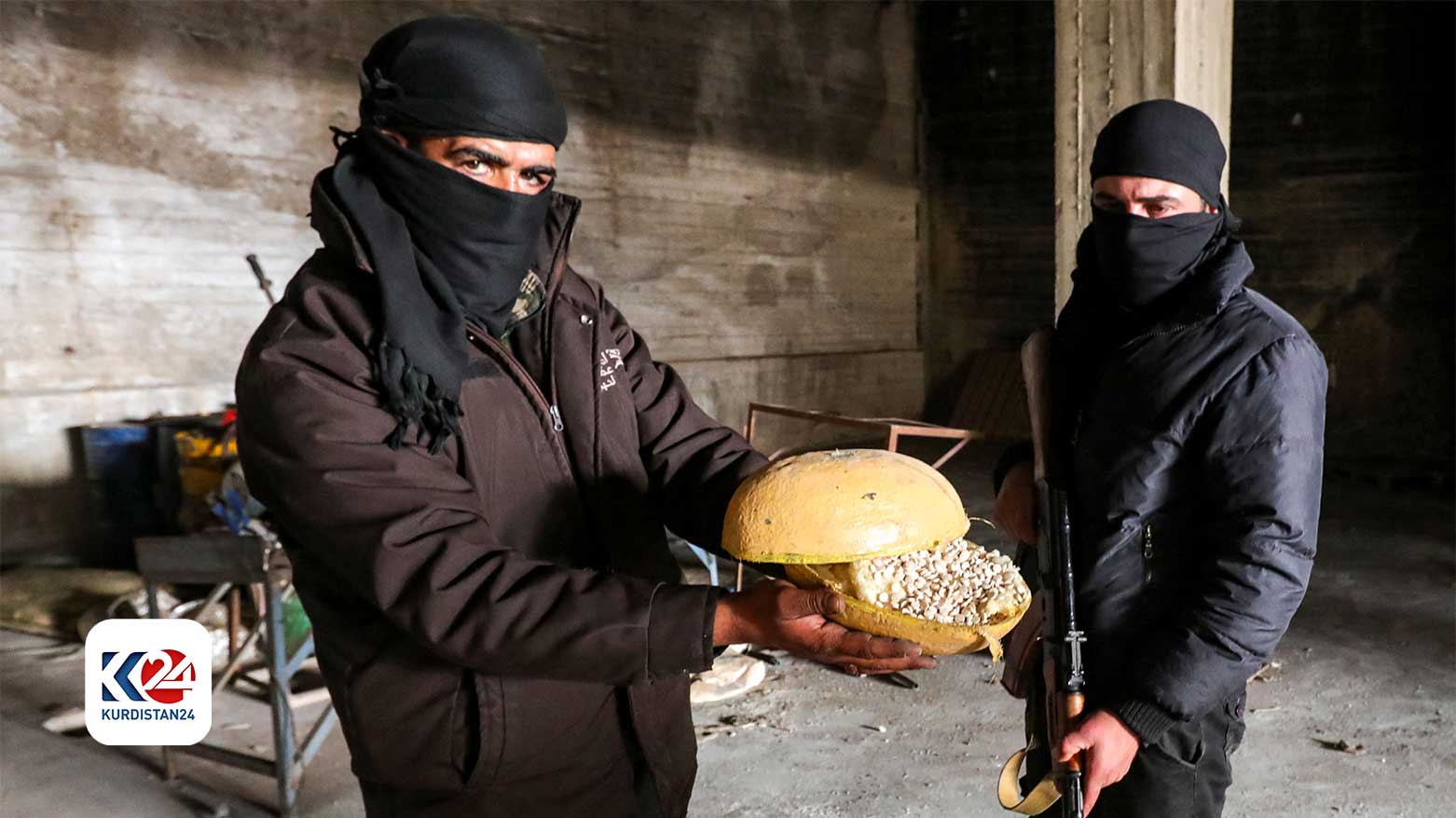British-Made chemicals found in Assad regime's Captagon factory in Damascus: Telegraph
The Observatory of Political and Economic Networks - which monitors Captagon trade in the Arab world - stated that Assad's regime earned an average of $2.4 billion on a yearly basis only from Captagon trade between 2020 and 2022.

Dec. 14, 2024
Erbil (Kurdistan24) – On Friday, the Telegraph reported that most chemicals found in a Captagon factory in Douma, Damascus countryside - previously operated by ousted Syrian President Bashar al-Assad's regime - were of British origin.
As stated by the newspaper, chemicals consisting of chloroform, formaldehyde solution, hydrochloric acid, petroleum ether, and ethyl acetate were discovered in brown containers bearing production labels of SureChem Firm in Suffolk, UK.
In a statement, the firm said it exported these chemicals in 2010 "as part of our last delivery to the country before the Syrian revolution began in 2011 and ensuing sanctions were imposed."
The firm explained that these materials were meant for "general laboratory work."
Evidence Burning Attempt
The Syrian opposition forces sources told the Telegraph that the factory was burning when they found it after workers set it on fire before escaping.
However, the opposition forces were able to put out the fire before all evidence could be destroyed.
The sources added that Captagon pills were discovered stashed in engines, furniture pieces, artificial fruits, and electrical transformers, ready for shipment.
In one of the factory rooms, fighters found hundreds of business cards that belonged to former government official Amer Tayseer Kheiti, who was suspected of being Syria's Captagon trade kingpin for a long time.
The suspicion was particularly because of his links with Maher al-Assad, the ousted president's brother and commander of the Army's Fourth Division.
Stolen Factory
The Telegraph quoted the former factory owner saying it was initially a potato chip manufacturing facility.
The factory’s former owner stated once he left Douma, he abandoned the factory following the Syrian regime's army control of the area in 2018.
The Observatory of Political and Economic Networks - which monitors Captagon trade in the Arab world - stated that Assad's regime earned an average of $2.4 billion on a yearly basis only from Captagon trade between 2020 and 2022.
This was equal to nearly a quarter of Syria's GDP.
According to observers, Syria - described by the U.S. Office of Foreign Assets Control as a global epicenter in Captagon production and trade - was manufacturing 80% of this narcotic substance, providing important financial funding to Assad's regime.